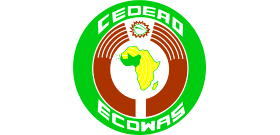 West African Ministers Commit to Reducing Air Travel Taxes by 2026
West African Ministers Commit to Reducing Air Travel Taxes by 2026
Transport Ministers from across West Africa’s regional body, ECOWAS, convened in Lomé in November 2024 to tackle the high cost of air travel in the region. The meeting focused heavily on reducing taxes and fees on international plane tickets, with a pledge to implement reforms by January 1, 2026, to make air travel more accessible and affordable.
A report by Jeune Afrique highlighted significant disparities in ticket taxes across major West African airports. In Cotonou, taxes for economy flights within ECOWAS can reach 92,560 CFA francs (€141), while first-class tickets to non-ECOWAS destinations are taxed at 128,560 CFA francs. In contrast, Abidjan imposes the lowest taxes, starting at 30,000 CFA francs for African destinations and rising to 52,500 CFA francs for non-African routes. Meanwhile, Lomé charges between 37,500 and 42,500 CFA francs, depending on the destination.
To address these issues, ECOWAS has committed to a 25% reduction in passenger and security-related fees while also working to eliminate non-compliant taxes. This initiative aims to boost passenger traffic, promote regional integration, and stimulate economic growth across West Africa. However, taxes are just one piece of the puzzle when it comes to the high cost of air travel within the region.
The International Civil Aviation Organization (ICAO) has long opposed taxes not directly tied to aviation, such as VAT and tourism-specific levies, labeling them as barriers to trade. An example is Cotonou’s “tourism development tax”, which adds 55,000 CFA francs to business and first-class tickets. Such fees, ICAO argues, discourage travel and undermine efforts to make air transport more competitive in the region.
Beyond taxes, structural challenges continue to drive up ticket prices in West Africa. Fuel costs, which are 12% above the global average, and high operational expenses—such as aircraft leasing, maintenance, and personnel salaries—remain significant obstacles. Regional airlines have argued that infrastructure costs, often passed on to passengers, should instead be treated as part of national development planning.
While ECOWAS’s tax reform efforts are a step in the right direction, experts caution that addressing taxes alone will not fully resolve the issue of unaffordable ticket prices. Competition, fuel costs, and operating expenses will continue to play pivotal roles in determining airfares. Without a comprehensive regulatory framework to address these broader challenges, achieving affordable air travel across West Africa will remain elusive.
For African travel agents, these developments highlight both challenges and opportunities. Lower taxes could help make regional travel more appealing to clients, but agents must also stay informed about broader cost drivers like fuel and operational expenses, which influence ticket pricing. As reforms unfold, travel professionals can position themselves to take advantage of potential increased passenger traffic and enhanced regional connectivity.
